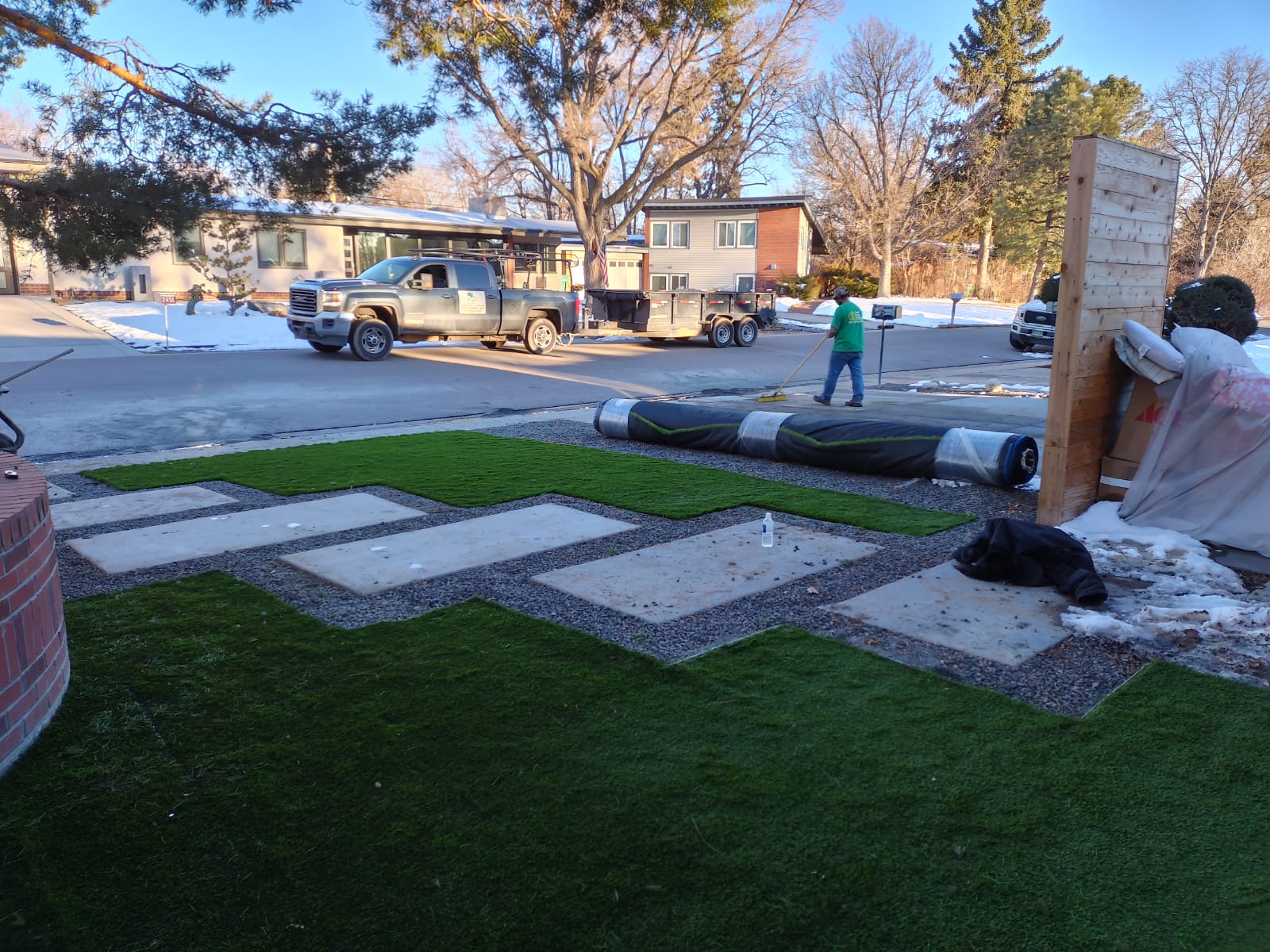Does snow harm synthetic grass? Absolutely not! We actually get this question quite often, especially as the cooler months approach. But rest assured, Just leave things be when winter is in full flow and the ground is frozen. You may move the snow about whatever you like when it is melting due to rising temperatures, make sure you use a plastic shovel.
Your artificial grass will never have slushy snow on it because of the excellent drainage capabilities of our grass and the permeability of good foundation construction. Let us elaborate on a few things concerning artificial grass in the winter.

Can frost harm artificial grass?
Contrary to natural grass, which can die off under harsh conditions, artificial grass won’t be harmed by the typical winter weather. If frost occurs, the plastic grass blades will harden. As a result, walking on it is less comfortable for both people and animals.
Walking on the fibers might result in harm if they freeze. It is therefore advisable to let snow and frost melt and let the water naturally drain through the lawn. Though incredibly robust, artificial grass is not indestructible.
How will snow affect artificial grass?
Artificial grass shouldn’t be much impacted by snow, and it is safe to walk or play on it while there is a layer of snow. Just keep in mind that artificial grass may momentarily turn slick when the snow melts.
After the snow has fallen, your lawn could become flat. However, it should naturally rebound, and you may assist in lifting the pile by brushing it with a turf-friendly brush. Utilize our tips to repair flattened turf. Avoid allowing the snow to accumulate if you can. It will freeze to ice and form packed layers when walked on, which may be problematic and possibly break the fibers. If your turf has some damaged areas you can use these tips to repair your artificial lawn.
Can you take any action to safeguard your turf?
Are you anticipating really chilly weather? A waterproof tarpaulin can be an option to protect the grass. It will offer an additional layer of weatherproofing. However, using salt to melt ice and snow is not something we advise. This is due to the potential for it to plug up drainage holes in the grass’s backing. If you do feel the need to add salt, we advise doing so seldom.
In theory, all artificial grass should be able to withstand the weather. Realistically, though, it can rely on the durability and quality of the artificial grass used. Always confirm this with the installer of your choice.

Advice from an artificial grass specialist!
Regarding your artificial grass in the winter, don’t worry too much. We’ve never had any issues with our customers complaining about this. Just maintain your artificial lawn the same way you would the rest of the year. To avoid harming your grass when removing ice and frost, practice routine care and consider some of the aforementioned guidelines. Additionally, if the grass is frozen and slick, it will prevent any accidents.
We’re here to help! Fill out our contact form to get in touch with Turf Pros Solution. Alternatively, you may reach us directly at 844-260-4144.
